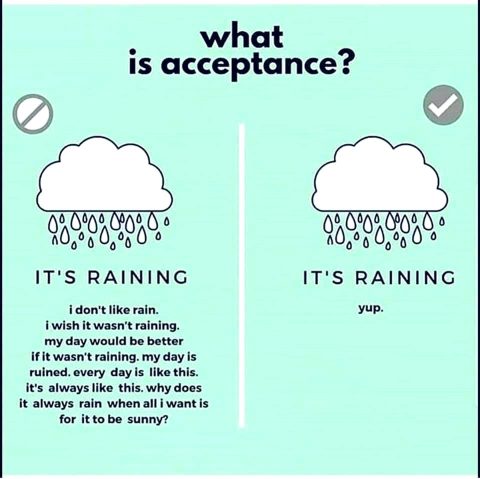

“a unique empirically based psychological intervention that uses acceptance and mindfulness strategies, together with commitment and behavior change strategies, to increase psychological flexibility.” The website explains ACT in simple terms: it is a type of therapy that aims to help patients accept what is out of their control, and commit instead to actions that enrich their lives (Harris, 2013).Īccording to the Association for Contextual Behavioral Science (ACBS), ACT is: What is Acceptance and Commitment Therapy (ACT)? Definitions and Core Processes 4 Acceptance Therapy Books (+ ACT for Dummies).7 Useful ACT Exercises, Technique, and Metaphors.10 Worksheets, PDF’s, PPT’s and ACT Resources.The Role of ACT in Psychology and Mindfulness.What is Acceptance and Commitment Therapy (ACT)? Definitions and Core Processes.These science-based, comprehensive exercises will not only help you cultivate a sense of inner peace throughout your daily life but will also give you the tools to enhance the mindfulness of your clients, students or employees.
#Acceptance and change therapy download
What if you could accept and allow yourself to feel what you feel, even if it’s negative?īefore you read on, we thought you might like to download our three Mindfulness Exercises for free. Imagine committing to actions that help you facilitate your experience and embrace any challenge.Īs you will see later in this piece, ACT is effective for a wide range of psychological disorders, and it is also effective as a life-affirming and inspirational perspective of self-determination. In the case of ACT, you commit to facing the problem head-on rather than avoiding your stresses. When aiming to be more accepting of your thoughts and feelings, commitment plays a key role. Medical conditions such as anxiety, depression, OCD, addictions, and substance abuse can all benefit from ACT and Mindfulness-Based Cognitive Therapy (MBCT).ĪCT develops psychological flexibility and is a form of behavioral therapy that combines mindfulness skills with the practice of self-acceptance. The easiest way to escape from the problem is to solve it. Running away from any problem only increases the distance from the solution. It may seem confusing at first, but ACT paired with mindfulness-based therapy offers clinically effective treatment.

Acceptance and Commitment Therapy (ACT) encourages people to embrace their thoughts and feelings rather than fighting or feeling guilty for them.


 0 kommentar(er)
0 kommentar(er)
